Thoughts to chew on Press Day, Chautha Khambha, really?
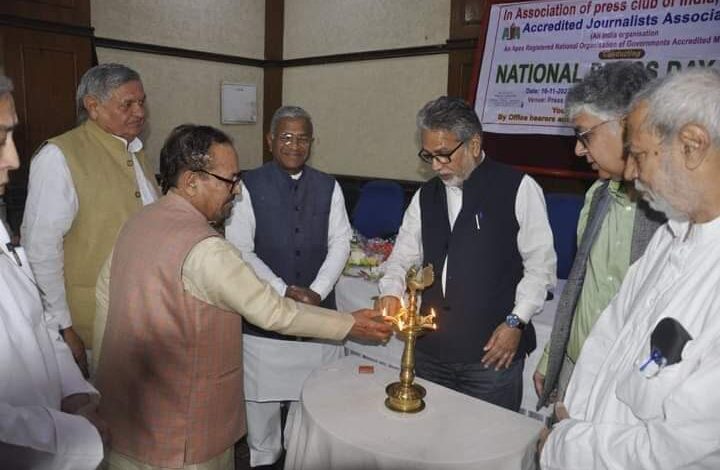
Amitabh Srivastava
The National Press Day organised by the Accredited Journalists Association and Press Club of India at the PCI was unique in several ways.
First, I for one had never heard the Chief Guest Harivansh Deputy Speaker earlier.
My loss entirely, I must confess because I have never covered parliament in my 45 years of journalistic career.

And no chance of doing that ever because as Umakant Lakhera disclosed yesterday this is decided by lottery.And for good or bad, Lady Luck has never favoured me.
But when I researched about Harivansh Singh later I came to know he is an established journalist and hence his knowledge of journalism not only Indian but globally and the digital challenges which he urged the assembled journalists to use as opportunities, made a lot of sense. And despite his longish discourse he was heard with patience and cheered by due hard journos, which is quite an achievement
Similarly it was a pleasure hearing Raghu Thakur, the well known Socialist thinker who released his latest book the English version of ‘Gandhi aur Ambedkar- Kitni Door Kitni Pass’.
But for me the most cutting edge comment of the day came from Umakant Lakhera senior journalist President of the Press Club of India.
Speaking almost reluctantly towards the end of the function he said,”I have been travelling to various parts of the country and telling people don’t call the media the Fourth Estate or Chautha Khambha.I don’t know who wrote this and whether it is part of the Constitution but it means nothing.”
I would like to add to this that the so called and much extolled ‘Press Freedom’ per se is one of the biggest myths in India and the sooner we realise this the better.
The freedom of expression given under Article 19(1) of the Indian Constitution is conditional as the other sections of Article 19 show.
This freedom (terms and conditions apply) is given to every citizen and the press is no exception.
Of all countries in the world it’s only America that has guaranteed Press Freedom as such under the First Amendment to the Constitution which specifically mentions that even the Congress cannot remove this.
Interestingly this came into effect almost immediately after its Constitution came into effect.
If we see powerful and ruthless governments being overthrown in the most powerful democracy in the world due to efforts like the Watergate Scandal etc it’s because the media has been given this very important role there.
Interestingly, later Supreme Court judgments in the US have extended this immunity to social media and rights of individuals to freedom of speech. We will take ages to reach that level of tolerance,if ever.
Here is what the First Amendment says briefly:
“The First Amendment (Amendment I) to the United States Constitution prevents the government from making laws that regulate an establishment of religion, or that prohibit the free exercise of religion, or abridge the freedom of speech, the freedom of the press, the freedom of assembly, or the right to petition the government for redress of grievances.
It was adopted on December 15, 1791, as one of the ten amendments that constitute the Bill of Rights.”
This write up cannot be complete without a word about the commitment of Vijay Shankar Chaturvedi, veteran journalist and President of the AJI who not only cut short his visit to his daughter in Canada to organise this progress but also for choosing the speakers who provided different and often conflicting points of view on issues that needed to be talked about for our survival.



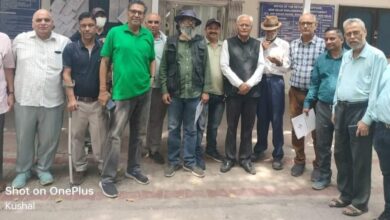
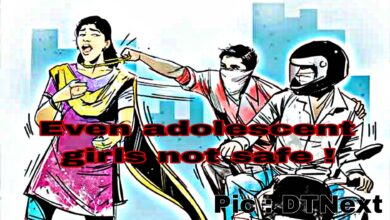
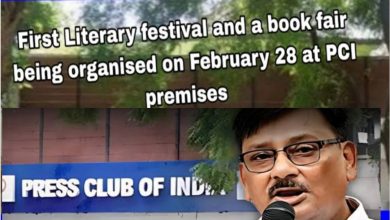
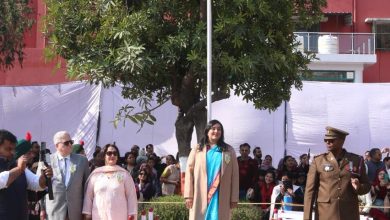
Wonderful information!